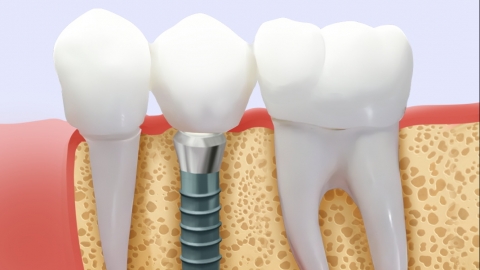What are the requirements for dental implants in the oral cavity?
Generally, dental implantation requires good oral hygiene, sufficient and qualified bone volume and quality, adequate space and position, proper occlusal relationship, and absence of severe oral diseases. Detailed explanations are as follows:

1. Good Oral Hygiene
Good oral hygiene is the foundation for successful dental implantation. Patients should maintain daily oral cleaning habits, such as brushing teeth twice daily, using dental floss, and regularly using mouthwash. If oral infection or inflammation occurs due to poor oral hygiene, it should be treated and controlled before implant surgery.
2. Sufficient and Qualified Bone Volume and Quality
Dental implants rely on healthy alveolar bone to support the implant. Patients must have sufficient bone volume and good bone quality in their mouths to ensure the implant can be firmly embedded. Insufficient bone volume or poor bone quality may result in the implant being unable to stabilize, thus affecting the implantation outcome.
3. Adequate Space and Proper Positioning
Implants require a certain amount of space, and their position must be appropriate. If there is insufficient space or improper positioning in the mouth, the implant may not be correctly placed or its stability may be compromised. Therefore, a comprehensive evaluation of the patient's oral cavity should be conducted before implant surgery to determine the optimal position and space for the implant.
4. Proper Occlusal Relationship
Patients should have a good occlusal relationship between their upper and lower teeth to ensure the implanted teeth can function normally. If the occlusal relationship is poor, the implanted teeth may not coordinate with other teeth, affecting chewing function and oral aesthetics.
5. Absence of Severe Oral Diseases
Severe oral diseases, such as oral cancer and oral mucosal diseases, can not only affect the safety and effectiveness of implant surgery but may also pose a threat to the patient's overall health. Therefore, before undergoing dental implantation, patients should be screened for other severe oral diseases to ensure good oral health.
It is recommended to regularly visit a dental hospital for scaling and cleaning to remove dental calculus and plaque and maintain oral cleanliness.




